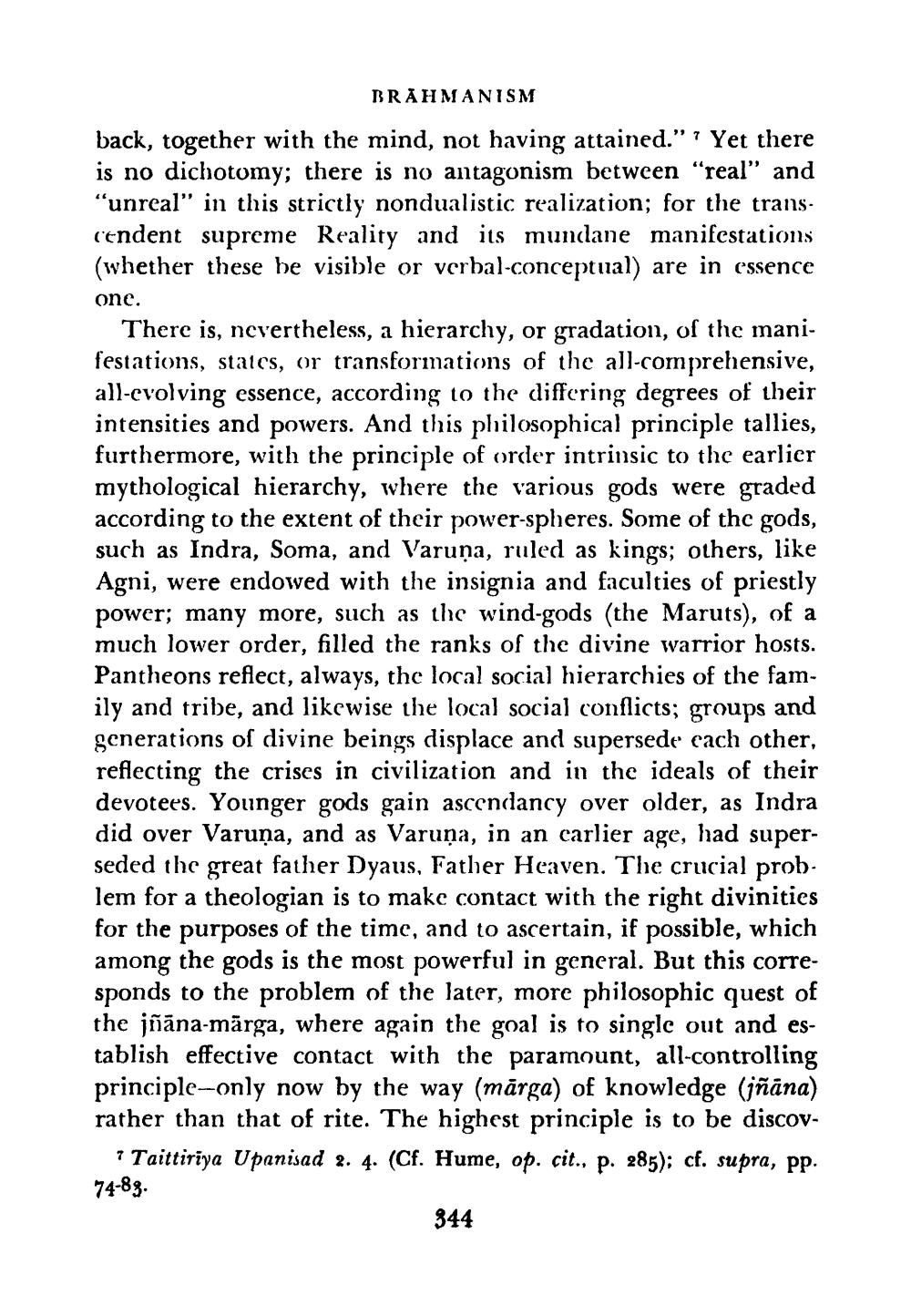________________
BRAHMANISM back, together with the mind, not having attained.” ? Yet there is no dichotomy; there is no antagonism between “real” and "unreal" in this strictly nondualistic realization; for the transcendent supreme Reality and its mundane manifestations (whether these be visible or verbal-conceptual) are in essence one.
There is, nevertheless, a hierarchy, or gradation, of the manifestations, statcs, or transformations of the all-comprehensive, all-evolving essence, according to the differing degrees of their intensities and powers. And this philosophical principle tallies, furthermore, with the principle of order intrinsic to the earlier mythological hierarchy, where the various gods were graded according to the extent of their power-spheres. Some of the gods, such as Indra, Soma, and Varuņa, ruled as kings; others, like Agni, were endowed with the insignia and faculties of priestly power; many more, such as the wind-gods (the Maruts), of a much lower order, filled the ranks of the divine warrior hosts. Pantheons reflect, always, the local social hierarchies of the family and tribe, and likewise the local social conflicts; groups and generations of divine beings displace and supersede cach other, reflecting the crises in civilization and in the ideals of their devotees. Younger gods gain ascendancy over older, as Indra did over Varuna, and as Varuna, in an carlier age, had superseded the great father Dyaus, Father Heaven. The crucial problem for a theologian is to make contact with the right divinities for the purposes of the time, and to ascertain, if possible, which among the gods is the most powerful in general. But this corresponds to the problem of the later, more philosophic quest of the jñāna-mārga, where again the goal is to single out and establish effective contact with the paramount, all-controlling principle-only now by the way (märga) of knowledge (jñāna) rather than that of rite. The highest principle is to be discov
? Taittiriya Upanisad 2. 4. (Cf. Hume, op. cit., p. 285); cf. supra, pp. 74-88
344




